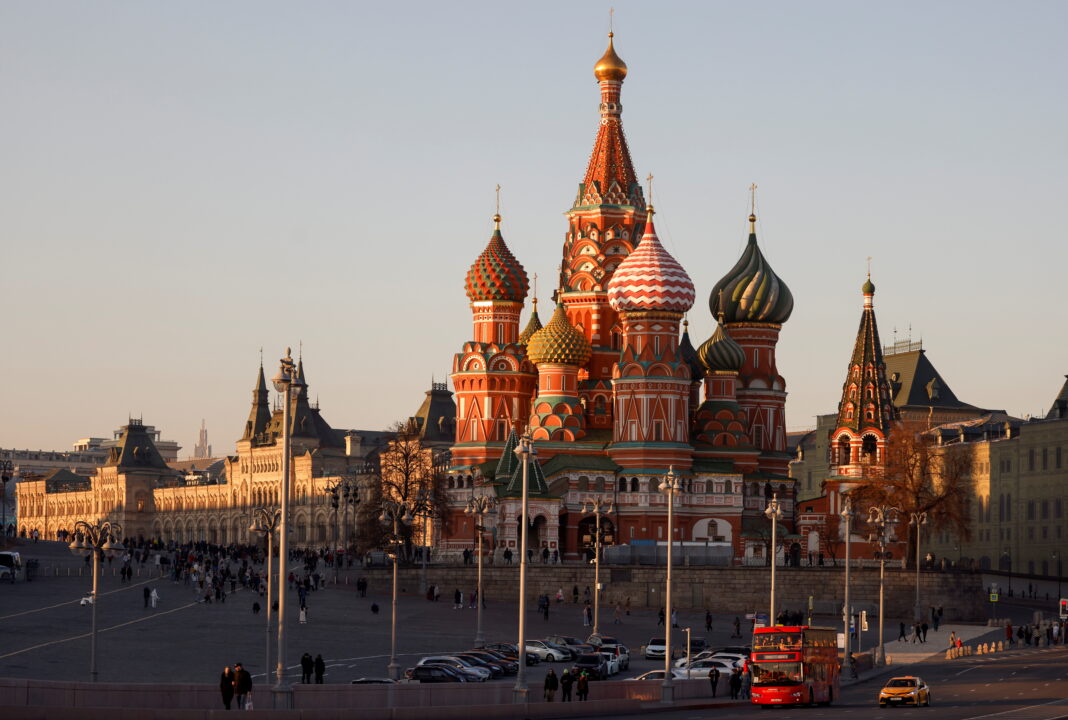The 2021 Eastwest Study Mission to Moscow saw six students travel to Russia to explore the wider mindset from the core organisations that make up this Eurasian state
The subject of energy and economics is an intriguing dynamic within the foreign policy of the Russian Federation. Both sectors are mutually dependent on one another yet individualistic in specific global linkages and practices. The 2021 Eastwest Study Mission to Moscow saw six students travel to Russia to explore the wider mindset from the core organisations that make up this Eurasian state.
Check out all the Eastwest European Institute’s courses.
Perceptions once harboured about Russian foreign policy were soon shattered and reformed as the group received primary opinions and facts from high-level individuals of various state and non-state organisations. There is no denying that Russia is a leader in terms of energy. First in the world for gas reserves, eighth globally for oil reserves and a leader in exporting various ore and precious materials. However, much of the West has viewed this prowess as a threat to security rather than an opportunity. The meeting at the Russian Foreign Ministry noted that Europe still views Russia as ‘sleeping’ when it comes to formulating their trade policies with Moscow. However, Russia is openly trading and has been fair with many European states in its export of gas and oil for their consumption.
Russia is currently supplying over 40% of EU gas imports but is viewed as an aggressor when shortages befall Europe. This is despite European gas consumption being at an all-time high as of 2021. Another meeting concerning energy was at the Skolkovo Innovation Centre with ENEL, a renewable energy company. ENEL showcased to the study group a reforming future for the energy sector in Russia. The final message denoted Russia as a possible world leader in terms of renewable energy usage and as a renewable exporter. Nevertheless, currently, the demand for renewable energy has not reached feasible amounts. For now, Russia must continue to export gas to its partners within the increasing incorporation of renewable energy sources such as wind and hydropower.
The economic aspects of Russian foreign policy was another aspect of this study mission that had a central place during the various discussions. At a particular session with the Russian Ministry of Industry and Trade, international sanctions were noted. Although sanctions are hurting the Russian economy, they have created improvements and greater self-reliance in sectors such as domestic agriculture. This meeting also noted that Russia has offered itself as an equal foreign policy partner to developing nations and does not have wholly self-absorbed interests as seen with the trade agreements between other developing countries with the West and or China. This is not a viewpoint we get to often see considered from Western media.
A final meeting of note from this trip came from representatives of the UniCredit. This thought-provoking discussion touched on several issues within the Russian economy and global repercussions. A unique finding was that the digitisation of the Russian economy is at a pace largely unmatched by more developed states. This may further advance Russia as a leader in banking technology. It will also set the benchmark for stamping out the grey economy that was once rife in the country. Whilst noting the positives with the Russian economic sector, this meeting still denoted negatives, such as the weak currency and a monopolised banking sector. Yet there remains a place for growth for foreign markets and engaging with the young capitalist society.
Overall, the energy and economic sectors of the Russian Federation seem to be strengthening. Long gone are Russia’s days of emanating its power through budding force and hard diplomacy. Now the language of economics and energy is voicing Russia’s foreign policy ideals onto the world stage. This study mission has helped develop this objective conclusion about Russia’s future. Without having undertaken such, we may have been left with a cynically formulated Western opinion of Russia that remains little changed from thirty years ago.
Patrick Flynn [Dublin], University College Dublin / Judicial Assistant to the Superior Courts of Ireland. Graduate at Law with History and Barrister-at-Law degree candidate.
John Leonard [Monaghan], PhD researcher of the geopolitics of Unrecognized States.
The 2021 Eastwest Study Mission to Moscow saw six students travel to Russia to explore the wider mindset from the core organisations that make up this Eurasian state




